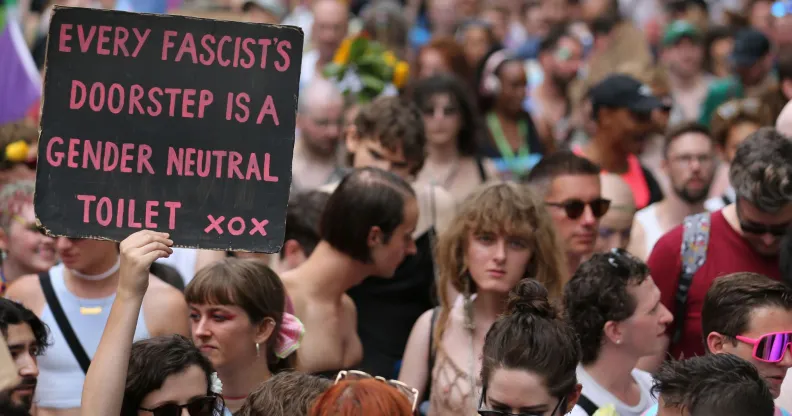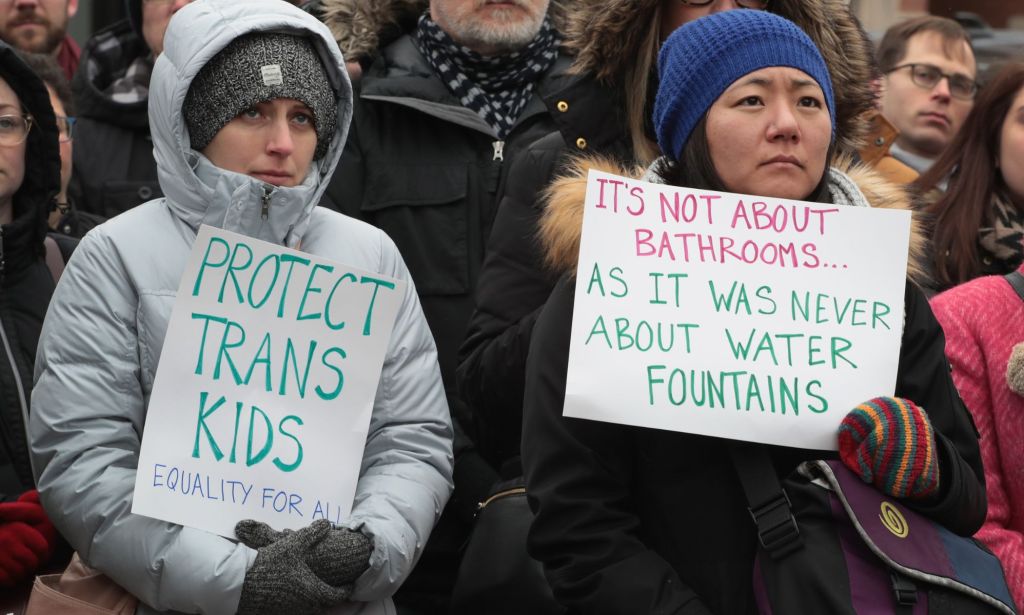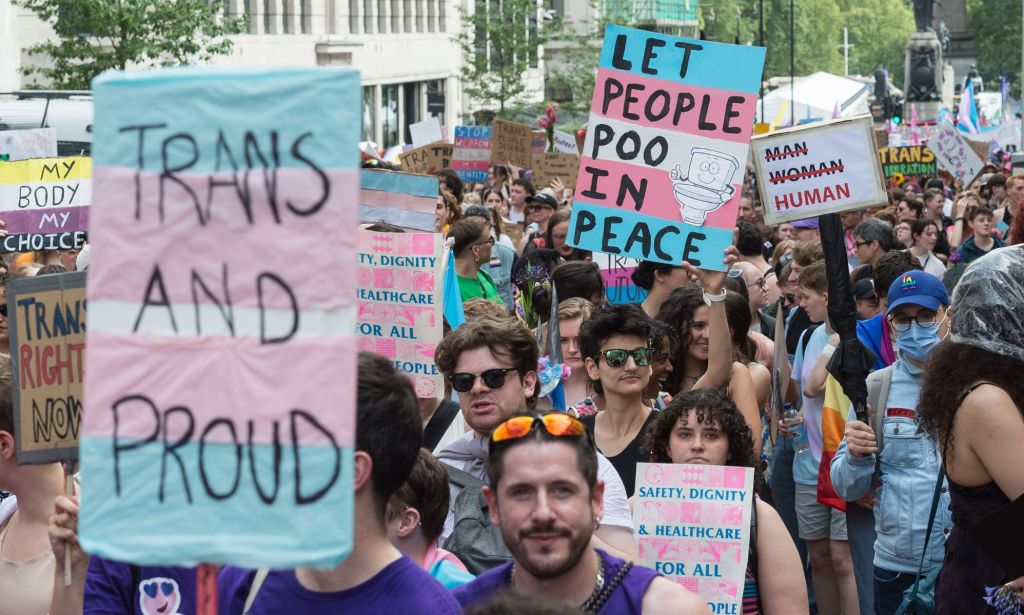UK crackdown on gender-neutral bathrooms could put trans people in danger – just look at the US

The UK government’s crackdown on gender-neutral toilets mirrors efforts by conservative lawmakers in the US to police how trans people can use bathrooms and participate in public life. (Getty)
What bathroom trans people use has become a political battleground in the US and UK – fuelling fear and violence.
Rishi Sunak’s government confirmed it will put a stop to gender-neutral communal toilets in new, non-residential buildings on Sunday (13 August). New shops, public buildings and offices will be required to provide separate male and female restrooms, which the Tory government argues is to “protect single-sex spaces”.
Writing in the Telegraph, Kemi Badenoch, minister for women and equalities, said that individual “unisex” toilets would be allowed, but that multi-user gender-neutral bathrooms were leading to “perverse outcomes”.
It’s the latest move in a long-standing campaign against trans-inclusive spaces perpetuated by the prime minister and his equalities minister, who was once reported to have called trans women “men using women’s bathrooms”.
Between this and the government’s reported plan to restrict trans people’s access to single-sex spaces, many are concerned.
Both Badenoch and Sunak claim to be standing up to “lefty woke culture”. But in fact, they’re just parroting American rhetoric that has been proven dangerous time and again.
US bathroom bills are part of a merciless attack against trans people
In 2016, a national firestorm erupted when North Carolina passed an anti-trans bathroom ban into law. Adidas, PayPal, Deutsche Bank and other businesses scuppered plans to expand into the state as a result of the hateful law.
Musicians – including Demi Lovato, Nick Jonas and Bruce Springstein – announced boycotts while other artists donated portions of local ticket sales to queer groups. Multiple lawsuits were filed against the state.
The law was largely repealed in 2017, but it laid the groundwork for other states to bring forward similar anti-trans bills.
Kansas, Oklahoma, Arkansas, North Dakota and Idaho have passed legislation restricting which restrooms trans people can use. Florida became the latest, in May of this year.

These laws send a message to trans people, young and old, that they don’t belong in public spaces, and it can lead to violence against an already marginalised and stigmatised community.
In 2019, Lauren Jackson, a trans woman from Oregon, was brutally attacked after emerging from a state park’s women’s restroom.
Alexa Negrón Luciano, a trans woman, was shot to death just hours after a customer complained about her using a women’s restroom at a fast food restaurant in Puerto Rico in 2020.
Last year, a trans man named Noah Ruiz was attacked and beaten when he left the women’s bathroom that he’d been told to use by a campground’s owner in Ohio. To top things off, he was then arrested by police.
Others are getting swept up by anti-trans discrimination as stories arise of bathrooms being turned into places of harassment and abuse for anyone who doesn’t conform to stereotypical, rigid views of gender.
Badenoch claims that the gender-neutral bathroom ban is designed partly to protect schoolgirls. But in the US, we’ve seen young people suffer because of rules on toilet usage.
The father of a young trans girl in South Dakota told PinkNews his daughter pretended to have a “broken arm and hand” so that she could use the nurse’s bathroom.

A 2020 peer-reviewed study by researchers at suicide-prevention organisation The Trevor Project found trans and non-binary youth who experienced bathroom discrimination had over 1.5 times the odds of attempting suicide in the past year compared to those who didn’t experience such horrific treatment.
The discriminatory bathroom policies are, of course, part of a wider attack on LGBTQ+ and trans rights in the US. This can also be seen in how the UK government is tackling queer issues.
The clampdown on gender-neutral toilets comes as the government prepares to set out new guidance to schools on trans issues. The delayed document is alleged to include provisions that prevent trans students from using the correct bathrooms, ban such students from single-sex schools in England and compel teachers to ‘out’ trans, non-binary and gender non-comforming pupils to their parents.
Politicians have increasingly discussed altering the category of ‘sex’ to mean ‘biological sex’ in the Equality Act 2010, to the horror of trans activists and allies alike.

